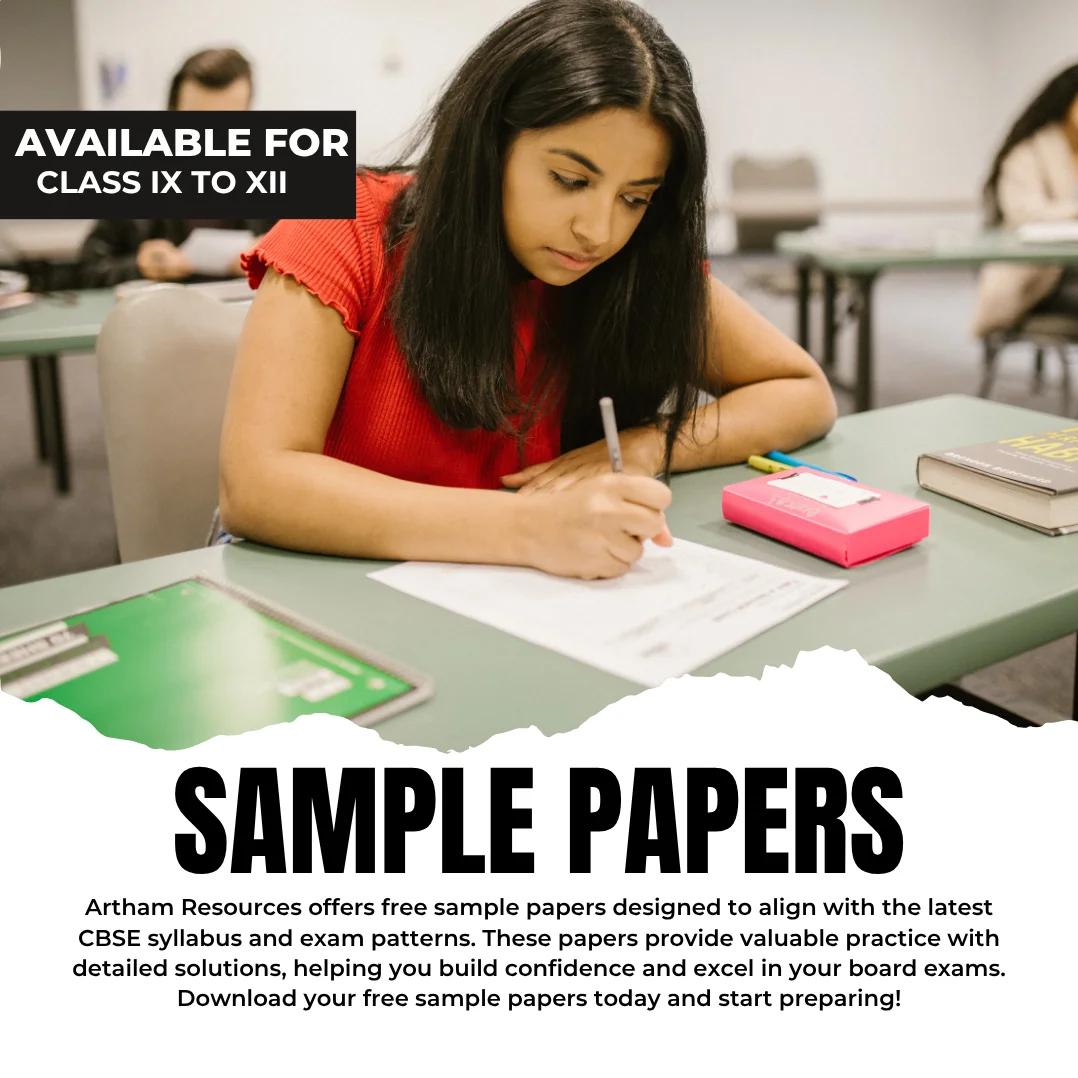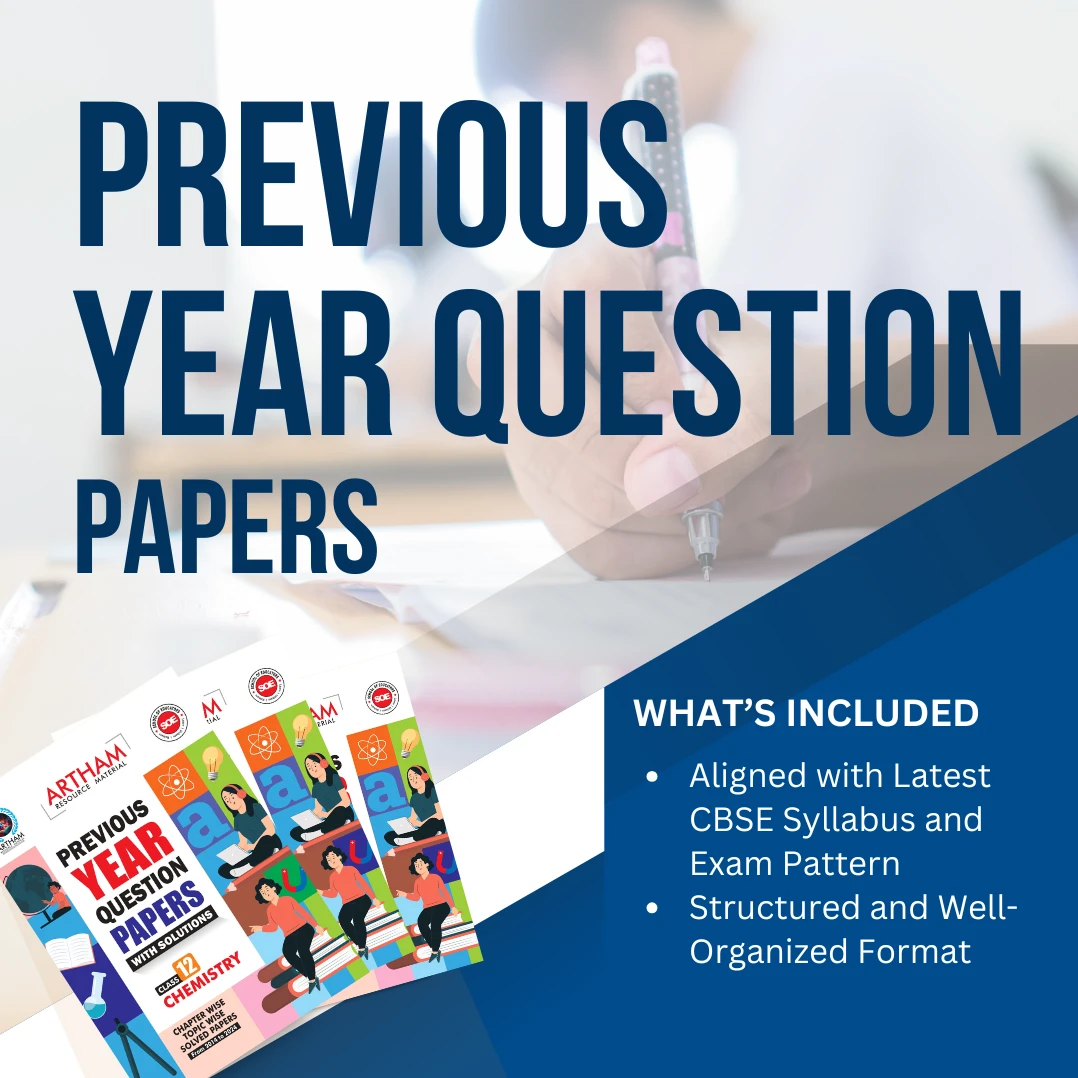Shop Left Sidebar
- CBSE
- Chapter Wise Topic Wise Notes
- Class 10
- Class 9
- Competency-Based Question Bank
- Competitive Exams & Aptitude Tests
- Comprehensive Viva Voice
- Courses
- CUET
- Daily Practice Paper (DPP)
- Diagnostic Assessment
- eBooks
- For New School
- Foundation and Olympiad Study Material
- Gift for Students
- Gift for Teachers
- Half Yearly Sample Question Paper with Solution
- Holiday Homework
- Illustrative Charts
- Journal
- Kindergarten
- Lesson Plan
- Life Skills
- Line by Line Questions
- Mind Maps
- Must Buy
- NCERT Exemplar Solutions
- NCERT Solutions
- Notes
- POWERPOINT PRESENTATIONS
- Pre Launch Stage
- Premium WhatsApp Group
- Previous Year Question Papers
- Previous Year Question Papers with Solutions
- Print version of SOP
- Sample Paper
- Sample Paper with Solutions
- Self Development
- Split -up Syllabus
- Sports and Physical Education
- Standard Operating Manuals
- Study Materials for Students
- Teachers Manual with Lesson Plans
Best seller
-
-100%
₹ 50.00Original price was: ₹ 50.00.₹ 0.00Current price is: ₹ 0.00. -
-100%
₹ 50.00Original price was: ₹ 50.00.₹ 0.00Current price is: ₹ 0.00. -
-100%
₹ 50.00Original price was: ₹ 50.00.₹ 0.00Current price is: ₹ 0.00. -
-100%
₹ 299.00Original price was: ₹ 299.00.₹ 0.00Current price is: ₹ 0.00.
- CBSE
- Chapter Wise Topic Wise Notes
- Class 10
- Class 9
- Competency-Based Question Bank
- Competitive Exams & Aptitude Tests
- Comprehensive Viva Voice
- Courses
- CUET
- Daily Practice Paper (DPP)
- Diagnostic Assessment
- eBooks
- For New School
- Foundation and Olympiad Study Material
- Gift for Students
- Gift for Teachers
- Half Yearly Sample Question Paper with Solution
- Holiday Homework
- Illustrative Charts
- Journal
- Kindergarten
- Lesson Plan
- Life Skills
- Line by Line Questions
- Mind Maps
- Must Buy
- NCERT Exemplar Solutions
- NCERT Solutions
- Notes
- POWERPOINT PRESENTATIONS
- Pre Launch Stage
- Premium WhatsApp Group
- Previous Year Question Papers
- Previous Year Question Papers with Solutions
- Print version of SOP
- Sample Paper
- Sample Paper with Solutions
- Self Development
- Split -up Syllabus
- Sports and Physical Education
- Standard Operating Manuals
- Study Materials for Students
- Teachers Manual with Lesson Plans
Showing 81–96 of 174 results
-
-50%
Chapter Wise Topic Wise Notes Class 12 English (Prose) Chapter 5 Indigo
₹ 50.00Original price was: ₹ 50.00.₹ 25.00Current price is: ₹ 25.00.“Chapter Wise Topic Wise Notes Class 12 English (Prose) Chapter 5 Indigo” offers a comprehensive breakdown of Chapter 5 from the Class 12 English syllabus, focusing on the prose piece “Indigo” by Louis Fischer. This chapter recounts the historical account of the indigo farmers’ struggle against British colonial exploitation in India. The notes provide an in-depth analysis of key themes such as colonialism, resistance, and socio-economic impact.
-
-50%
Chapter Wise Topic Wise Notes Class 12 English (Prose) Chapter 4 The Rattrap
₹ 50.00Original price was: ₹ 50.00.₹ 25.00Current price is: ₹ 25.00.Chapter 4 of the Class 12 English (Prose) syllabus, “The Rattrap” by Selma Lagerlöf, explores themes of human nature, deception, and redemption. This chapter follows the story of a peddler who is trapped in the metaphorical sense, symbolized by the rattrap. As he wanders through the woods, he experiences an epiphany about his life and the choices he has made.
-
-50%
Chapter Wise Topic Wise Notes Class 12 English (Prose) Chapter 3 Deep Water
₹ 50.00Original price was: ₹ 50.00.₹ 25.00Current price is: ₹ 25.00.“Deep Water” by William Douglas is an insightful narrative from Class 12 English that explores the author’s harrowing experience with a near-drowning incident during his youth. This chapter unveils Douglas’s deep-seated fear of water, which stemmed from a traumatic experience at a local swimming pool. The notes for this chapter provide a comprehensive analysis of the text, covering key themes such as fear and courage, and the psychological impact of traumatic experiences.
-
-50%
Chapter Wise Topic Wise Notes Class 12 English (Prose) Chapter 2 Lost Spring
₹ 50.00Original price was: ₹ 50.00.₹ 25.00Current price is: ₹ 25.00.The chapter-wise topic-wise notes for Class 12 English (Prose) on “Lost Spring” provide a comprehensive analysis of the chapter by Anees Jung. The chapter explores the harsh realities faced by children working in the glass-blowing industry in Firozabad, highlighting their lost childhood and the cycle of poverty that entraps them. These notes delve into the themes of exploitation, social injustice, and the impact of poverty on education and childhood.
-
-50%
Chapter Wise Topic Wise Notes Class 12 English (Prose) Chapter 1 The Last Lesson
₹ 50.00Original price was: ₹ 50.00.₹ 25.00Current price is: ₹ 25.00.“The Last Lesson” by Alphonse Daudet is a poignant narrative set during the Franco-Prussian War. The chapter revolves around the final lesson of French in a school in Alsace-Lorraine, a region recently annexed by Germany. Through the eyes of the young protagonist, Franz, readers experience the emotional gravity of the situation. The story highlights themes of patriotism, regret, and the profound impact of losing one’s native language and culture.
-
-50%
Chapter Wise Topic Wise Notes Class 12 Economics Chapter 6 Open economy Macroeconomics
₹ 50.00Original price was: ₹ 50.00.₹ 25.00Current price is: ₹ 25.00.“Chapter Wise Topic Wise Notes Class 12 Economics Chapter 6: Open Economy Macroeconomics” provides a comprehensive breakdown of the key concepts in open economy macroeconomics. This chapter delves into topics such as international trade, exchange rates, balance of payments, and the impact of foreign trade on the domestic economy. It covers theories and models explaining the effects of trade policies, currency fluctuations, and global financial markets on economic performance.
-
-50%
Chapter Wise Topic Wise Notes Class 12 Economics Chapter 5 Government Budget and the Economy
₹ 50.00Original price was: ₹ 50.00.₹ 25.00Current price is: ₹ 25.00.“Chapter Wise Topic Wise Notes Class 12 Economics Chapter 5: Government Budget and the Economy” provides a comprehensive overview of the essential concepts related to the government’s budget and its impact on the economy. This chapter explores the significance of government budgeting, including its objectives, types, and components. It delves into concepts such as revenue receipts, expenditure patterns, fiscal deficit, budget deficit, and their implications on economic stability and growth.
-
-50%
Chapter Wise Topic Wise Notes Class 12 Economics Chapter 4 Determination of Income and Employment
₹ 50.00Original price was: ₹ 50.00.₹ 25.00Current price is: ₹ 25.00.“Chapter Wise Topic Wise Notes Class 12 Economics: Chapter 4 – Determination of Income and Employment” provides a comprehensive overview of the crucial concepts within the chapter. This chapter focuses on the determination of national income and employment levels through different economic models and theories. It covers key topics such as aggregate demand and supply, the Keynesian cross model, equilibrium output, and the multiplier effect.
-
-50%
Chapter Wise Topic Wise Notes Class 12 Economics Chapter 3 Money and Banking
₹ 50.00Original price was: ₹ 50.00.₹ 25.00Current price is: ₹ 25.00.“Chapter Wise Topic Wise Notes for Class 12 Economics – Chapter 3: Money and Banking” provides a comprehensive summary of the fundamental concepts related to money and banking. This chapter explores the nature of money, its functions, and the role it plays in the economy. It delves into various types of money, including commodity and fiat money, and explains the banking system’s structure and functions. Key topics include the creation of money by banks, the role of central banks, monetary policy, and the impact of money supply on the economy.
-
-50%
Chapter Wise Topic Wise Notes Class 12 Economics Chapter 2 National Income Accounting
₹ 50.00Original price was: ₹ 50.00.₹ 25.00Current price is: ₹ 25.00.The “Chapter Wise Topic Wise Notes for Class 12 Economics Chapter 2: National Income Accounting” provides a comprehensive and detailed explanation of the concepts related to national income. This chapter covers the measurement of national income, the various methods used such as the GDP, GNP, NNP, and NDP, and their significance in the economy. It explains the production, income, and expenditure approaches to calculating national income and addresses common challenges and discrepancies in measurement.
-
-50%
Chapter Wise Topic Wise Notes Class 12 Economics Chapter 1 Introduction to Macro-economics (Rationalised)
₹ 50.00Original price was: ₹ 50.00.₹ 25.00Current price is: ₹ 25.00.The “Chapter Wise Topic Wise Notes Class 12 Economics Chapter 1 Introduction to Macro-economics (Rationalised)” provides an in-depth exploration of the foundational concepts of macroeconomics. This comprehensive guide is tailored to the rationalised syllabus, ensuring students grasp key topics such as national income, aggregate demand and supply, and economic indicators. The notes simplify complex theories with clear explanations, illustrative diagrams, and real-world examples, making them accessible and engaging.
-
-50%
Chapter Wise Topic Wise Notes Class 12 Economics Chapter 10 Comparative Development Experiences of India And Its Neighbours
₹ 50.00Original price was: ₹ 50.00.₹ 25.00Current price is: ₹ 25.00.Chapter 10 of the Class 12 Economics syllabus, titled “Comparative Development Experiences of India and Its Neighbours,” delves into the economic trajectories and developmental policies of India, Pakistan, and China. This chapter provides a comprehensive analysis of the similarities and differences in the economic strategies adopted by these countries post-independence. Students will explore various parameters such as GDP growth, sectoral development, human development indicators, and trade patterns to understand how these nations have evolved economically.
-
-50%
Chapter Wise Topic Wise Notes Class 12 Economics Chapter 9 Environment and Sustainable development
₹ 50.00Original price was: ₹ 50.00.₹ 25.00Current price is: ₹ 25.00.The “Chapter Wise Topic Wise Notes Class 12 Economics Chapter 9: Environment and Sustainable Development” offers a comprehensive overview of key concepts related to the environment and its intersection with economic development. This chapter delves into the importance of sustainable development, addressing the need to balance economic growth with environmental conservation. Topics include the causes and effects of environmental degradation, measures for sustainable resource management, and the role of government policies in promoting sustainability.
-
-50%
Chapter Wise Topic Wise Notes Class 12 Economics Chapter 8 Infrastructure (rationalised)
₹ 50.00Original price was: ₹ 50.00.₹ 25.00Current price is: ₹ 25.00.Chapter 8 of Class 12 Economics, titled “Infrastructure,” provides a comprehensive overview of the essential facilities and services required for the economic development of a country. This chapter delves into the significance of infrastructure in both social and economic contexts, highlighting sectors such as energy, transport, communication, health, and education. The rationalised notes simplify complex concepts, offering clear explanations and relevant examples to help students grasp the importance of robust infrastructure in fostering sustainable growth.
-
-50%
Chapter Wise Topic Wise Notes Class 12 Economics Chapter 7 Employment Growth, Informalisation and Other Issues
₹ 50.00Original price was: ₹ 50.00.₹ 25.00Current price is: ₹ 25.00.“Chapter Wise Topic Wise Notes Class 12 Economics Chapter 7: Employment Growth, Informalisation, and Other Issues” provides a comprehensive overview of key concepts and issues related to employment in India. This chapter explores the dynamics of employment growth, the increasing informalisation of the job sector, and other critical issues affecting the labor market. It examines factors influencing employment patterns, the implications of informal work on economic stability, and the challenges faced by various sectors.
-
-50%
Chapter Wise Topic Wise Notes Class 12 Economics Chapter 6 Rural Development
₹ 50.00Original price was: ₹ 50.00.₹ 25.00Current price is: ₹ 25.00.“Chapter Wise Topic Wise Notes Class 12 Economics Chapter 6: Rural Development” offers a comprehensive overview of key concepts related to rural development as outlined in the Class 12 Economics curriculum. This chapter delves into the multifaceted aspects of rural development, including the various schemes and policies aimed at improving the economic and social conditions of rural areas. The notes cover essential topics such as poverty alleviation, rural infrastructure, agricultural development, and the role of government and non-governmental organizations in fostering rural progress.
Teaching is one of the hardest and most important jobs in the world. We provide the support that teachers need to transform their subjects into terms that their students will understand.
- Nageen International
- B-162, 4th Floor, DDA Shed, Okhla Industrial Area Phase 1 New Delhi-110020 (India)
- WhatsApp us at +91-95208-11111
- Email: info@educatorsresource.in
- (Monday to Saturday) WhatsApp 24*7
2025 Educator Resources. All Rights Reserved.




